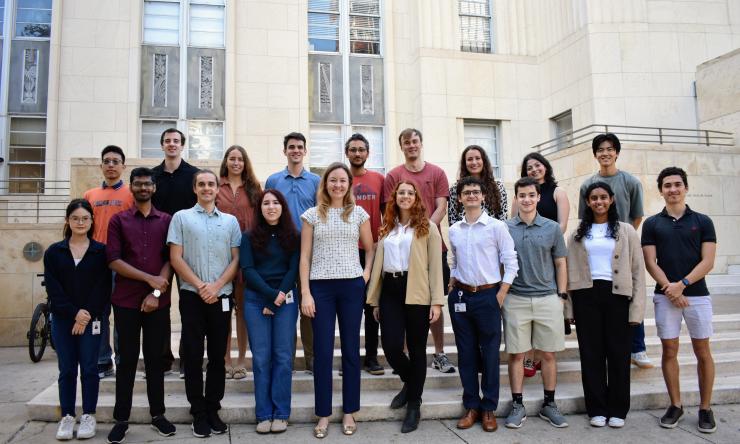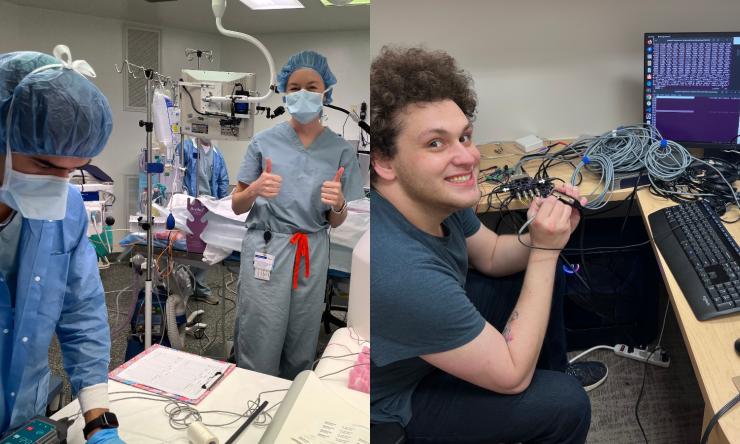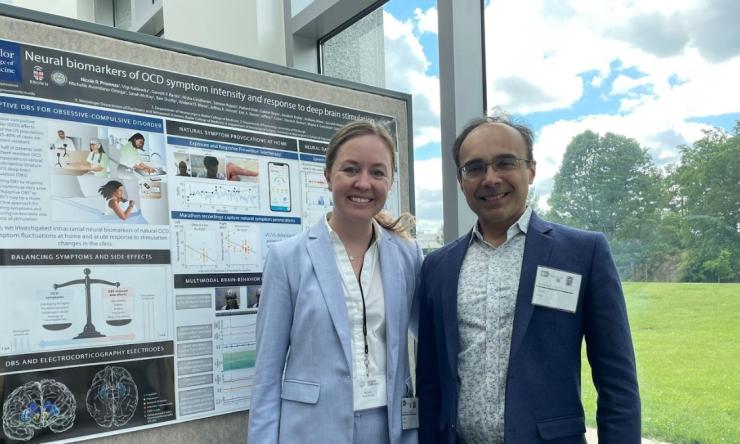About This Lab
The Provenza laboratory uses an engineering approach to investigate ethologically relevant brain-behavior relationships underlying psychiatric symptoms to develop personalized neuromodulation strategies that will improve outcomes for psychiatric disorders. To study these complex internal states, we leverage multimodal monitoring to link symptoms to observable, quantifiable behaviors.
We measure behavior alongside brain activity through intracranial electrophysiological monitoring in humans. Our research focuses on two patient populations:
- Ambulatory individuals implanted with recording-capable DBS devices
- Individuals in the inpatient setting undergoing intracranial monitoring
Areas of Research Interest
Gain an ethologically valid understanding of how the brain supports real-world behavior
Assessment of psychiatric symptom severity currently relies on subjective reports from patients, a process that places a high burden on patients to frequently and accurately report their symptoms. These sparsely sampled surveys represent snapshots in time and hence are not suitable for capturing continuously evolving symptom states. Behavioral characterization combined with deep learning approaches, or "deep phenotyping," is rapidly becoming democratized by the recent wave of commercially available wearable sensors and publicly available deep learning models. Our lab uses machine learning to extract meaningful metrics from speech, movement, sleep, kinematics, and activity level using data collected from wearable devices in naturalistic settings, synchronized to neural activity. Integration of neural activity and deep phenotyping approaches will inform neural signatures underlying real-world functional deficits in cognitive and emotional disorders.
Investigate the impact of stimulation on brain networks and develop personalized neurostimulation therapies
Neuromodulation has been used for refractory psychiatric disorders including OCD and depression with variable success. Progress thus far in treating these disorders has been mostly empirically driven, both in terms of surgical targeting and stimulation parameter selection. Improving our fundamental understanding of the neurophysiological structure of the affected networks would allow for a more data-driven approach to address these challenges, which in turn would likely improve the inconsistency and predictability of outcomes. Currently, stimulation paradigms are uniform and simple. Relevant neural circuits, on the other hand, communicate in a complex symphony of neural activity that may not optimally respond to these simple paradigms. As we learn about the link between real-world behaviors and neural activity, our lab aims to develop more neurobiologically valid stimulation paradigms to drive circuits from unhealthy to healthy states. These naturalistic paradigms are likely to be complex. Our lab's work aims to better understand how the involved networks respond to increasingly complex and perhaps more natural neuromodulatory input. We will use this information to pioneer the development of bespoke stimulation strategies that more effectively guide brain and behavior toward healthy states.
Contact Information
Email: Nicole Provenza, nicole.provenza@bcm.edu
Address: BCM-Smith Medical Research Building
NSB Neurosensory/Jones Tower NB151
Houston, TX, 77030











